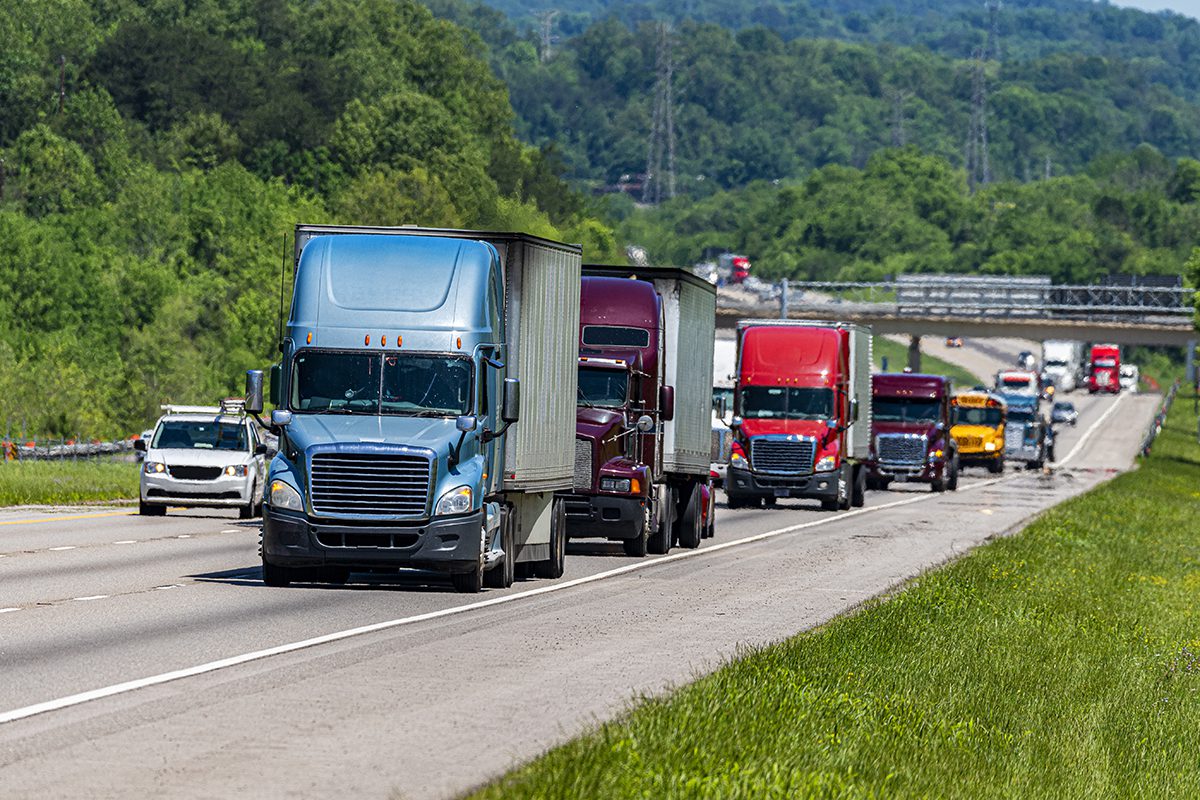“As California goes, so goes the nation,” rings true when it comes to the topic of clean energy standards and emissions regulations. After one of the most influential public entities, the California Air Resources Board (CARB) passed the Advanced Clean Trucks (ACT) Regulation in June of 2020, five more states have followed suit and adopted ACT Regulations of their own just in 2021 alone.
The five states that have adopted ACT Regulations this past year are:
- Oregon – Effective starting with model year (MY) 2025 for operators that have five or more medium- and heavy-duty trucks and gross annual revenues of more than $50 million in 2021; includes a one-time fleet reporting requirement, due no later than June 30, 2022.
- Washington – Effective starting with MY 2025; does not include a large entity fleet reporting requirement.
- New Jersey – Effective starting with MY 2025 for operators that have one or more vehicles over 8,500 GVWR and gross annual revenues of more than $50 million in 2021; includes a one-time fleet reporting requirement due no later than April 1, 2023.
- New York – Effective starting with MY 2025 for operators that have one or more medium- and heavy-duty trucks and gross annual revenues of more than $50 million in 2021; includes a one-time fleet reporting requirement, due no later than April 1, 2023.
- Massachusetts – Effective starting with MY 2025 for operators that have medium- and heavy-duty vehicles greater than 8,500 lbs. GVWR; does NOT include a large entity fleet reporting requirement.
The ACT regulation is a first of its kind rule requiring manufacturers to sell increasing percentages of zero-emission heavy-duty trucks, starting with the 2024 model year. Per the CARB Fact Sheet: “Sales requirements are defined separately for three vehicle groups: Class 2b-3 trucks and vans, Class 4-8 rigid trucks, and Class 7-8 tractor trucks. The regulation is structured as a credit and deficit accounting system. A manufacturer accrues deficits based on the total volume of on-road heavy-duty truck sales within California in a given model year. These deficits must be offset with credits generated by the sale of zero-emission vehicles or near zero-emission vehicles.”
This regulation is the opening volley in CARB’s efforts to reduce the lifecycle emission of greenhouse gases (GHGs) and eliminate tailpipe emissions of air pollutants, with zero-emission purchase requirements for commercial heavy-duty fleets expected to follow in the next few years. This two-pronged approach is expected to significantly reduce pollutants from mobile sources and fossil fuels, along with the negative public health and environmental impacts that they cause. These sources are the largest contributors to the formation of ozone, greenhouse gas emissions, fine particulate matter, and toxic diesel particulate matter. Considering the share of California’s GDP that shipping and logistics accounts for, reductions in this industry will have beneficial impacts beyond just the state of California itself, especially as neighboring states join in adopting stricter regulations that improve air quality.
As we start another year of legislative deliberation and state agency rulemaking for 2022, GNA is keeping a close watch on the next group of states that may be considering adopting the ACT rule. Among this group are Connecticut, Colorado, and Rhode Island.
Connecticut
On December 16, 2021, Executive Order 21-3 was issued by Connecticut Governor Lamont which required the Connecticut Department of Energy and Environmental Protection (DEEP) to submit or publish an assessment of whether it was necessary for the state to adopt the ACT Regulation to meet statutorily required emission reduction targets under the Global Warming Solutions Act (“GWSA”), by January 31, 2022. The state must then pass follow up legislation authorizing DEEP to implement the ACT Regulation in Connecticut. The bill did not pass during the 2021 legislative session, but it would have required ACT adoption if at least five other states adopted it. As noted, five other states outside of California have adopted the ACT, so if the bill language remains consistent with the previous year’s, it is likely that Connecticut will adopt the ACT Regulation this year.
Colorado
On December 13th, 2021, the Colorado Department of Transportation, Colorado Energy Office, and Colorado Department of Public Health hosted a Stakeholder Working Group to discuss the draft language of the upcoming Colorado Clean Truck Strategy. The draft actions to achieve these goals include strategies to update the state’s EV procurement goals and a cooperative procurement strategy aimed at public and private fleets. The goals of the working group to bring Colorado in alignment with California’s ACT Regulation look promising, and we may see significant progress in the state over the next year.
Rhode Island
Rhode Island was one of 15 states, and the District of Columbia, whose governors signed a memorandum of understanding (MOU), organized by the Northeast States for Coordinated Air Use Management (NESCAUM). This MOU calls for 30 percent of new truck and bus sales to be zero-emission by 2030 and 100 percent zero-emission by 2050, to bring the collective emissions standards up to the regulatory levels set by California. In response, Rhode Island is currently in the preliminary stages of developing an Advanced Clean Truck regulation for the state.
As of this writing, these are the states that have adopted or are actively working to adopt California’s ACT zero-emission sales requirement. In addition, several other MOU signatories — including Maryland, Pennsylvania, Vermont, and DC — have acknowledged the potential to adopt the ACT but remain in the evaluation phase of determining costs, benefits, and feasibility of doing so. The past two years have proven that the medium- and heavy-duty truck sector is experiencing a strong push to act in reducing GHG emissions, and this trend is expected to continue throughout 2022 and beyond.
GNA’s Policy 360 program will continue to monitor these states and others that are developing and exploring policies to promote, or restrict, clean transportation technology and infrastructure. For more information, please reach out to the Policy 360 Group.



